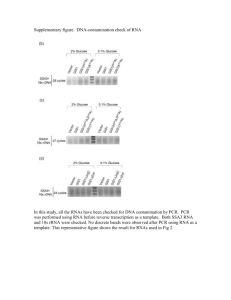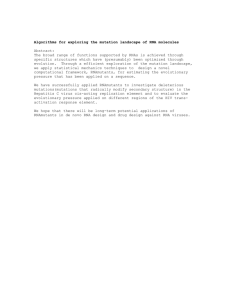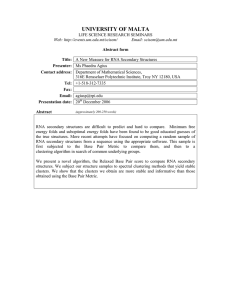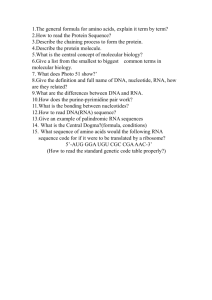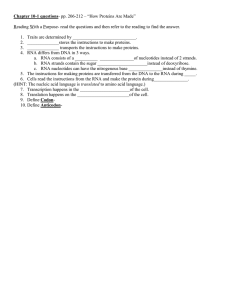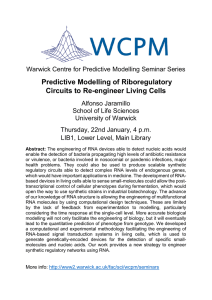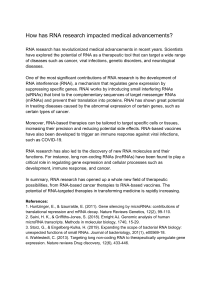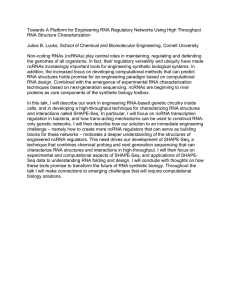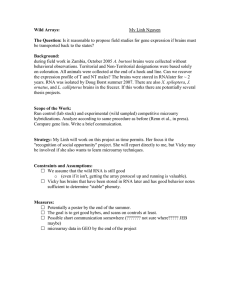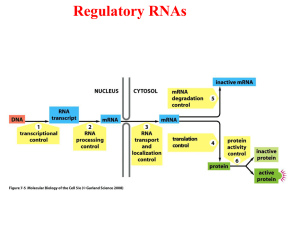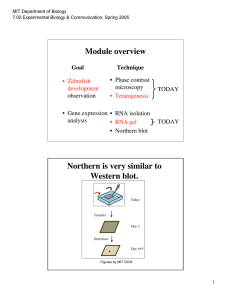RNA conformational switches and the Fast Fourier Transform
advertisement
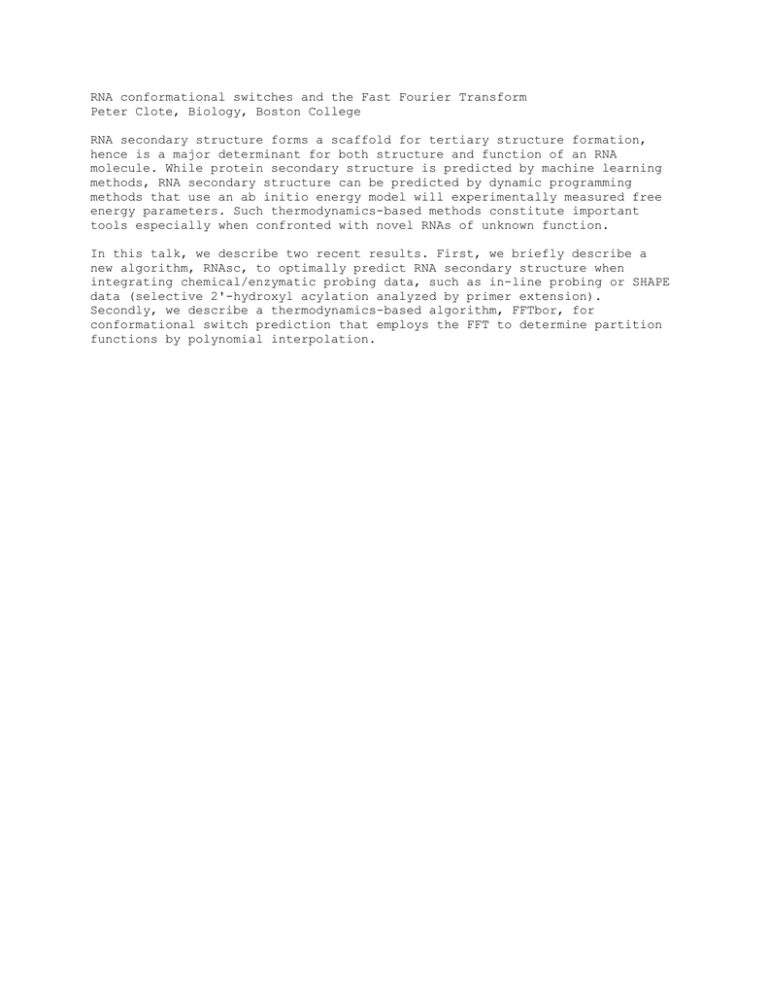
RNA conformational switches and the Fast Fourier Transform Peter Clote, Biology, Boston College RNA secondary structure forms a scaffold for tertiary structure formation, hence is a major determinant for both structure and function of an RNA molecule. While protein secondary structure is predicted by machine learning methods, RNA secondary structure can be predicted by dynamic programming methods that use an ab initio energy model will experimentally measured free energy parameters. Such thermodynamics-based methods constitute important tools especially when confronted with novel RNAs of unknown function. In this talk, we describe two recent results. First, we briefly describe a new algorithm, RNAsc, to optimally predict RNA secondary structure when integrating chemical/enzymatic probing data, such as in-line probing or SHAPE data (selective 2'-hydroxyl acylation analyzed by primer extension). Secondly, we describe a thermodynamics-based algorithm, FFTbor, for conformational switch prediction that employs the FFT to determine partition functions by polynomial interpolation.

